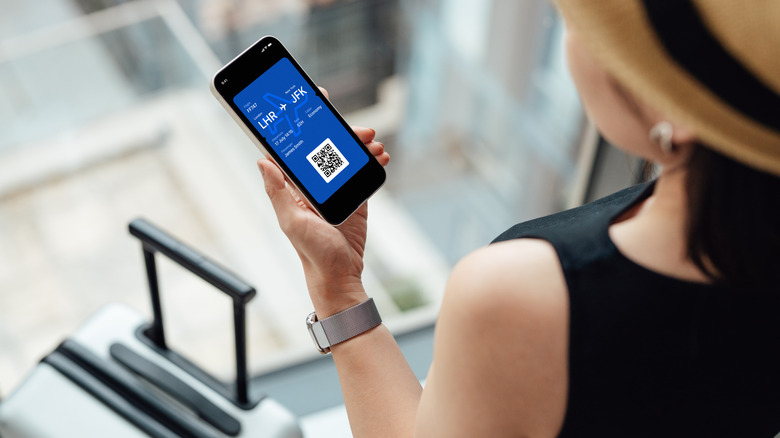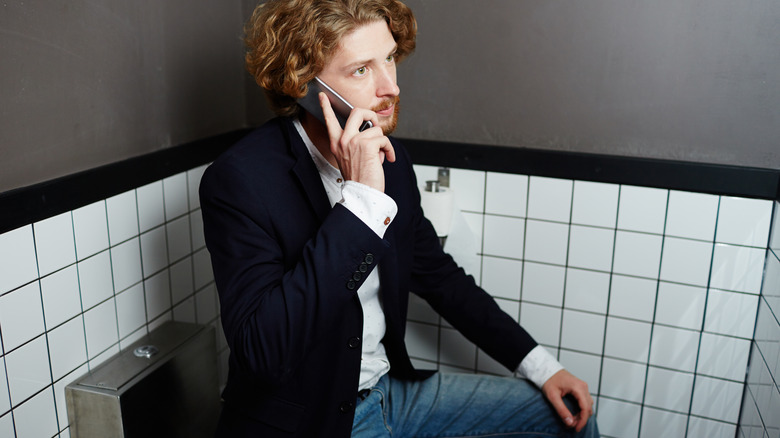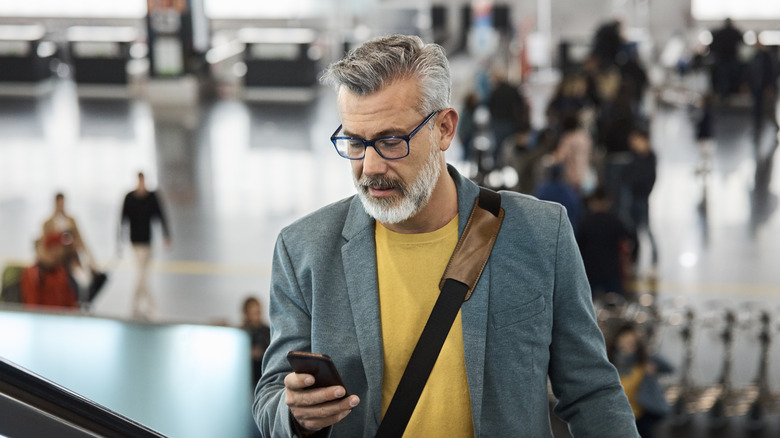Overall, people behave well in airports. This is kind of amazing when you think about it: Here is a complex that seals hundreds, maybe thousands, of people inside at any given moment. Some will spend a few harried minutes racing from one gate to the next, desperate to make a connection; others will wait for hours, bored to tears, sometimes crouched on the floor because there’s nowhere to sit. TSA checkpoints alone are stressful, and then flyers are faced with possible delays, late arrivals, technical issues, hunger, fatigue, and shifts in time zone. This is a high-pressure scenario, full of long waits and inevitable inconveniences. Yet somehow, anarchy doesn’t break out. Travelers stay cool. Folks follow the rules.
Yet there is at least one common exception that alarms many patrons and disgusts others: taking calls in an airport restroom. If you set aside all social graces, this habit makes sense: People want privacy for certain calls, and airports provide very little. Restrooms are also relatively quiet, as long as no one is flushing a toilet or using a noisy hand dryer. Some airport restrooms are downright pleasant, or even award-winning, making them weirdly appealing places to spend time. Meanwhile, air travel can also put us in a weird headspace; travelers might spend 30 or more hours in one artificial environment or another, without a shower, satisfying sleep, or breath of fresh air. What does it matter, then, if you take a phone call while washing your hands?
Well, a lot of people take exception to it, as they should. Restroom phone calls are intrusive, awkward, and unhygienic. Given the limitless capabilities of your typical smartphone (especially the camera), the presence of this handheld device can even be seen as threatening in such an intimate space. You could easily add this to a list of the worst airport etiquette mistakes.
Why you shouldn’t take a phone call in an airport bathroom
Best places to make a phone call in an airport
Okay, so bathrooms are out. Just wait until you’ve finished up and make a call elsewhere. But — where? Airports are often busy and distracting, and travelers may feel like they’re bothering others by talking into a phone or earpiece. It’s true that a growing number of people prefer texting to actual calls, and with so many text-based services — WhatsApp, Telegram, WeChat — there are plenty of ways to communicate without using our voice. Still, you may have to actually talk with someone while you’re still in the terminal. What’s the best place to take that call?
No matter how busy the airport, you can almost always find a quiet gate or hall. Sit-down restaurants are often a good option, especially between major meals; you can order something simple, like a coffee or soft drink, and enjoy the comfort of your own booth. Many airports also have special “business zones,” with tables, electrical sockets, and USB ports; while others may also be working here, this is a fairly predictable place to hold an important conversation, especially if you monitor your volume. In short, creative travelers can almost always carve out an inoffensive space for talking. And if you need an excuse to end the call, you can always say, “Mind if we cut this a little short? Nature’s calling.”




